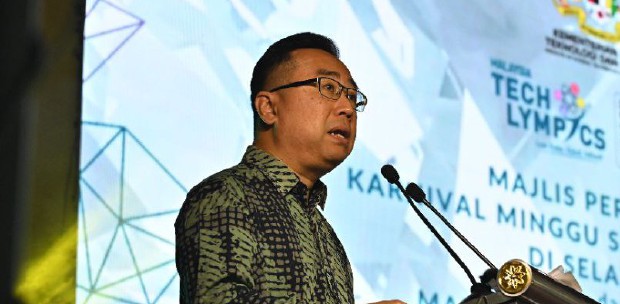KUALA LUMPUR: Malaysia is coming up with a set of artificial intelligence (AI) governance and code of ethics on the back of increased interest in the AI businesses expanding their reach and accessing new markets.
The initiative is expected to be ready this year, according to industry officials.
A notable example of heightened interest here is the collaboration between YTL Power International Bhd and US-based Nvidia Corp to develop AI infrastructure and introduce the fastest supercomputers to Malaysia by mid-2024.
The announcement was made during a meeting between Nvidia chief executive officer Jensen Huang and Prime Minister Datuk Seri Anwar Ibrahim.
In the same month, the government and global tech giant Google had teamed up to boost opportunities for Malaysians and local companies in the growing digital economy.
AI code of ethics is the development of policies and laws to promote and regulate AI to ensure the technology is used safely, ethically and responsibly.

Science, Technology and Innovation Minister Chang Lih Kang said the plan to come up with AI regulation is the end goal and it starts with the establishment of AI governance and code of ethics.
"This process takes time and can't be done quickly," Chang told Business Times in an email interview.
Other countries, including the US and the UK, are also working on regulations to govern AI so they can benefit from the technology while mitigating the risks.
In 2021, the European Union took the initiative to come up with regulations for AI, marking the initial steps in addressing the challenges posed by this technology and despite an early lead, the implementation of these regulations is not anticipated until 2025.
"The government is closely monitoring the adoption of AI regulation around the world. It still takes some time for the EU members to adapt and adopt the act according to their country," Chang said.
Industry players, he said, are too concerned that the AI act will hinder technology innovation, which is not true.
"However, too much regulation can stifle the growth of rapidly developing technology," he added.
Industry stakeholders said these regulations should not impede technology innovation as the regulations can serve as a catalyst for innovation by fostering a conducive environment, mitigating risks, and ensuring the ethical and responsible utilisation of AI.

The National Tech Association of Malaysia (PIKOM) chief executive officer Ong Kian Yew said such regulation will spur innovation towards responsible development since the guideline has already been set.
Data privacy, fairness and accountability are some of the examples of a few criteria in AI regulation.
"However, having the level of regulatory intervention proportionate to the potential harm caused by specific applications will allow for flexibility and avoid unnecessary burdens on low-risk applications.
"It should be made clear to the industry that algorithmic bias, discrimination, against individuals or groups, and privacy violations are not acceptable," Ong added.
Depending on the industry and area where AI is being used, the impact of AI regulation to business can be in terms of additional investment for resources and infrastructure.
Businesses will need to invest in resources and expertise to comply with new regulations, this includes developing robust AI governance frameworks, conducting risk assessments, and implementing transparency and accountability measures, he said,
Ong said businesses need to develop and deploy AI systems that are fair, transparent, and accountable, which may involve incorporating ethical considerations into the design and development process, employing techniques to mitigate bias, and ensuring explainability of AI decisions.
Industry stakeholders can offer technical expertise and insights to policymakers to inform the development of regulations that are both effective and feasible.
Chang said stakeholders can engage in ongoing dialogue and collaborations through town hall sessions or other forms of interaction with the relevant ministry that allows the industry stakeholders to be part of shaping the AI regulation and ensure a balance between innovation and compliance.
For example, an engagement session with the standardisation bodies enables businesses to participate in the development of international AI standards.
"This can help businesses to ensure their AI systems are interoperable and comply with the regulatory frameworks," he added.
Ong said compliance to the regulations will increase trust and customer confidence.
A survey by Ipsos Malaysia, a multinational market research and consulting firm, found that 70 per cent of Malaysians trust companies that use AI as much as they trust other companies.
At the same time, it will help to reduce the risk of legal challenges and fines associated with unfair, biased, or discriminatory AI systems, he added.
Ong said the public should also be engaged in discussions and consultations to raise awareness about AI and its potential benefits and risks.
"This will help shape public perceptions and inform regulatory decisions," he added.






